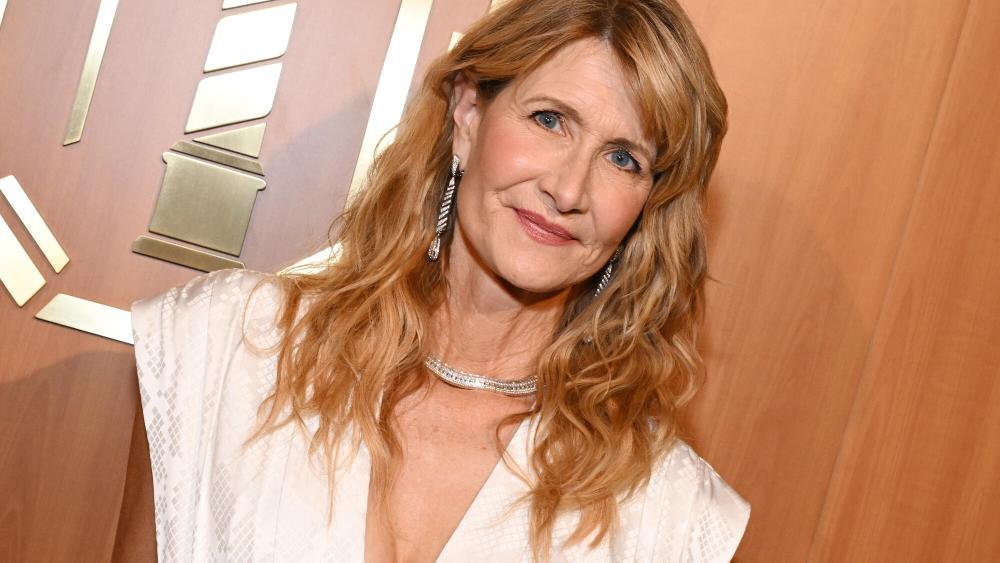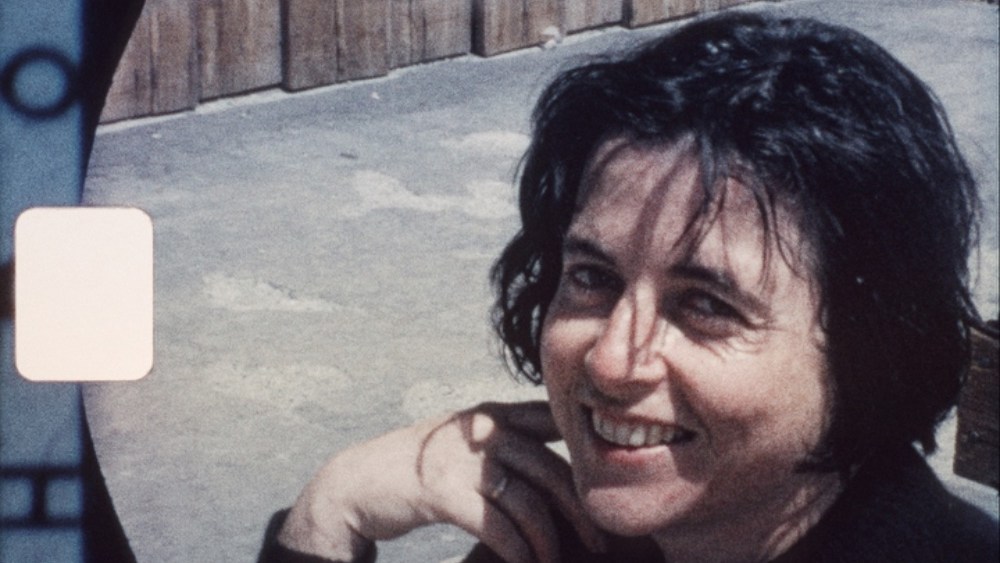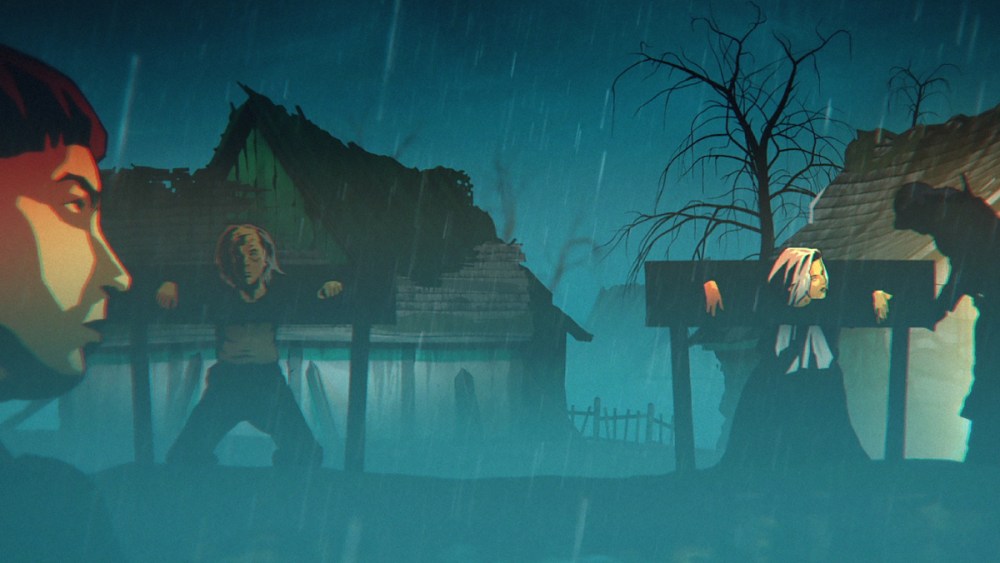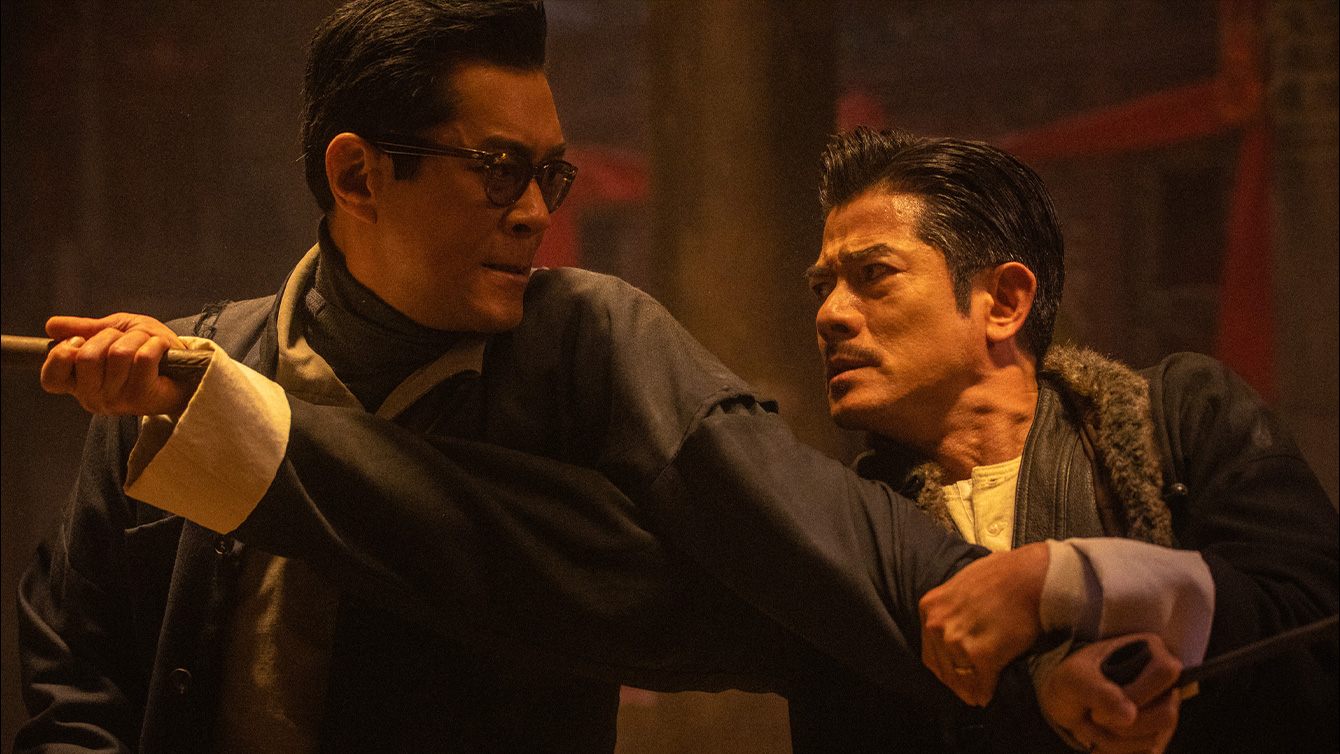Laura Dern on ‘Big Little Lies’ Season 3, Adam Sandler and Family
Laura Dern is fearless, from her breakthrough in David Lynch’s “Wild at Heart” to her Oscar-winning turn in “Marriage Story.”
But as the Variety Awards Circuit Pdocast met with the star to discuss her latest work — two radically different films arriving this fall — the actress seems more interested in talking about purpose than performance, and more concerned with showing up for what matters than chasing the next accolade.
“I feel really privileged to be talking to you about two movies at this time that are about empathy and kindness and not missing your life and not being caught up by ambition or disregard for what matters to you in totally, radically different ways,” Dern reflects, acknowledging the weight of discussing art during troubling times. “The movies are both speaking to that.”
The films in question couldn’t be more tonally distinct. Noah Baumbach’s “Jay Kelly,” starring George Clooney, uses the iconography of Hollywood stardom to deliver a universal message about presence and priorities. Bradley Cooper’s “Is This Thing On,” featuring Will Arnett and a surprising turn from NFL legend Peyton Manning, explores the aftermath of a breakup with raw honesty and unexpected humor. What unites them is Dern’s ability to find the humanity in characters navigating life’s most complicated terrain.
For Dern, these themes hit close to home. Raised by working actors Bruce Dern and Diane Ladd, she understands intimately the sacrifices required by the profession. “The thing that always so upset me in my own childhood and then I’ve had to deal with my children, is you never get to plan anything, because you never know when you’re going to be asked to leave for three months to go to Budapest or New York or wherever it is,” she explains. The reckoning that “Jay Kelly” presents, she says, should resonate with anyone, regardless of profession: “Our goal is to show up for our loved ones and the people we care about, kind of at all cost.”
Her parents remain her greatest inspiration, not just as artists but as models of longevity. “Retirement has never been a word I understood or knew in my family,” Dern says, citing recent research on purpose-driven lives contributing to longevity. But she’s quick to point out a darker reality: “Heartbreakingly, for those who don’t know, in the acting profession, our unions, Screen Actors Guild, has no true health care plan for actors in retirement. So when you stop working, you lose your health care.”
When asked what she would change about the Academy Awards as the organization approaches its centennial, Dern’s answer reveals her values. Reflecting on last year’s emotional tribute to David Lynch, she says, “I felt such grief and such devotion amongst every single person in that room for what David Lynch meant to them, and I thought to myself, there has to be more time taken to pay tribute to the people who changed the craft forever.”
In “Is This Thing On,” which Cooper shot in just over 30 days operating the camera himself, Dern reunites with the intimate, raw filmmaking style that first drew her to acting. “I think it really holds the kind of storytelling and filmmaking that we all fell in love with when we were watching the movies of the 70s that made us want to do this,” she notes, praising both Cooper’s direction and Arnett’s “beautiful performance.”
As for the upcoming return to “Big Little Lies,” Dern is more than ready to reunite with her character, Renata Klein. “She’s truly endless bliss for an actor,” she says. “Even when you show up on set with an idea, she still shocks and surprises you — and that’s the greatest experience you can have.”
Dern compares the role to her breakout in Alexander Payne’s “Citizen Ruth,” calling both characters “so boundaryless you’re not sure where they’ll take you.” With Renata, she adds, “I don’t get to be in charge — she’s driving the ship. And I love that about her.” However, Dern is also candid it’s her time working with Nicole Kidman, Reese Witherspoon, and the rest of the stunning cast and filmmakers that makes the experience even sweeter: “To be with literally my best friends — oh my God, the greatest women ever. I feel so lucky.”
On this episode of the Variety Awards Circuit Podcast, she discusses her roles in Baumbach and Cooper’s films, reflects on a changing Hollywood, and what we can expect from her future roles.
NOTE: This episode was recorded 12 days prior to the passing of her mother Diane Ladd.
Also on this episode, Nina Hoss, one of the stars of Nia DaCosta’s “Hedda.” Listen below!
Read excerpts from his interview below, which has been edited and condensed for clarity.
Laura Dern, Diane Ladd at arrivals for “Enlightened” Season 1 premiere in 2011. (Elizabeth Goodenough/Everett Collection)
What does it feel to work on two films that are so tonally different?
The world is radically troubling. And I feel in rarefied air to be here with you, getting to talk about movies, because we’re so privileged to have our jobs and to love them. But also, I don’t take it lightly that storytelling is a pretty extraordinary opportunity to talk about things that matter. In the most troubling of times when you feel that using voice for cause can be — and sometimes it is — the very most important thing, I feel really privileged to be talking to you about two movies at this time that are about empathy and kindness and not missing your life and not being caught up by ambition or disregard for what matters to you in totally, radically different ways. But the movies are both speaking to that. So with great good fortune, those are the movies that I’m getting to talk about right now.

Laura Dern, “Jay Kelly” (Netflix /Everett Collection)
©Netflix/Courtesy Everett Collection
Do you see yourself in the titular character in “Jay Kelly,” where he feels like he missed out on life because of his career?
I think I love how you describe the film, because I think Noah and Emily Mortimer, when they wrote the script, and Noah in his direction, clearly is speaking to the iconography of the movie star, and what we project onto the movie star and how our lives have sort of been narrated by the films and the music that are the background to our lives. For many of us, we’ve also placed both positively and negatively stereotypes or heartbreaks or longings onto the movie star. And truthfully, I think the film is a gift to all of us, using that language, using cinema as this backdrop to say, don’t miss your life.
I think for all of us, the ambition to first of all just make enough money to take care of a family, and if you’re blessed to do it with a vocation that you care a lot about or craft you care about, is its own dance. The sort of equity that’s put within industries on where you need to be at a given time to make sure you are the boss of the thing has really had misguidance in it for a lot of people who have to make really hard decisions. As a working actor raised by working actors, I think the thing that always so upset me in my own childhood and then I’ve had to deal with my children, is you never get to plan anything, because you never know when you’re going to be asked to leave for three months to go to Budapest or New York or wherever it is. The difference in my generation is we’ve been given the opportunity to take our children with us, or help us have support so there’s a place our kids can be, and a babysitter there with us. My mom, you couldn’t bring a kid. I mean, in summer, my mom figured out a way that I was with her, but it was a lot more sacrifice, even I think, for that generation.
Definitely watching this movie, my own childhood and my children’s childhood has been a reckoning of, you know, and I hope it is a reckoning for everyone who sees it, whatever their passion or profession, which just is that our goal is to show up for our loved ones and the people we care about, kind of at all cost. And it’s tough when work gets in the way. Painful.
What did it feel like to have the examples of your parents — Bruce Dern and Diane Ladd — who have been respected veterans and are still working regularly?
I’m so moved in learning more about the longevity research, particularly that Dan Buettner has done on the Blue Zones globally. And the thing that we’ve now learned is the greatest path to longevity is purpose, and a purpose driven life and a service driven life. And my parents are working actors at 89 years old. Retirement has never been a word I understood or knew in my family. And they’re such amazing storytellers and they’re such radical characters. So they’re both doing amazing, and they inspire me every day to just keep going.
To be direct, because you and I go there about all things when we talk, heartbreakingly, for those who don’t know, in the acting profession, our unions, Screen Actors Guild, has no true health care plan for actors in retirement. So when you stop working, you lose your health care. So I also say that a lot of actors of my parents’ generation are desperately looking for two days on a TV show in their 80s, because they’ve got to work a certain amount of hours to continue to qualify for their health insurance.

Laura Dern, Will Arnett, Bradley Cooper, “Is This Thing On?” (Joseph McDonald / Searchlight Pictures / Everett Collection)
©Searchlight Pictures/Courtesy Everett Collection
What was it like working with Bradley Cooper on his third film?
Bradley is such a brilliant, truly brilliant filmmaker in terms of how he sees the movie he wants to make, even if we haven’t caught up to it yet. He saw it before he had it on the page, and then continued to develop it, invited me in. With Will and I working very intimately with Bradley on the dynamics of the relationship, to have them embedded in the story without having to be scripted, was so raw and cool and beautiful to me. I did see the dynamics of marriage that I’ve seen in other films, including “We Don’t Live Here Anymore” and “Marriage Story,” the question of breakup and divorce and children, and all the themes that we’ve seen in movies. But what this movie did that I thought was so brave was start us with a breakup where the audience and the protagonists of this breakup don’t know how we got here, and we don’t know what’s going to happen, and we just know it’s broken and we can’t fix it.
This question of giving ourselves the room to continually change — we’re living, breathing organisms that are ever changing, and how we think the day we marry someone that 20 years later it’s going to be the same person is nuts. The system is rigged. How we think that can be successful, instead of finding the room to evolve within yourself and bring that new identity into the marriage is hopefully the goal.
Are you a huge football fan? How was it working with Peyton Manning?
Imagine me at lunch or dinner breaks on that movie, sitting between the two of them—Peyton and Bradley—knowing little to nothing about football. I mean, I was raised by one of the biggest sports fans of all time, but in terms of being raised in LA predominantly on basketball and baseball. I didn’t really go to a lot of NFL games once the Rams left. But Bradley has taken me to a few Eagles games, and so I have had the privilege of being in that stadium and the obsession of fandom. I had not seen fandom like that in the US.
Listening to them talk about the game was incredible. You can know almost nothing about the NFL or the game of football, but you can know that Peyton Manning was the best there has ever been. And then you get to have this amazing experience. But no, Peyton was incredible. He’s such a good actor. Peyton was so generous, such an incredible guide to me about what it feels like for an athlete at that level. His knowledge of it and us trusting him as the greatest sets up a scene in such a great way that honestly, him being there and his ability as an actor kind of sets up Tess’s entire past history in a scene.
Can you recall your first Oscar nomination and how it felt?
I was raised by actors and a godmother who’s an extraordinary actress, Shelley Winters. I was raised around the Academy Awards being the space where your peers acknowledge your storytelling, whatever craft you’re in. And there was a weighted-ness to it in my childhood. I understood that it was this really beautiful honor and event to be nominated.
But the thing that happened that was so beautiful was it was the first time in Oscar history, maybe the only time, that a mother and daughter were both nominated and for the same film. My mom and I—my mother, Diane Ladd, was also in “Rambling Rose.” So the call came from my publicist, Annette Wolf, because the publicists are in the room and there’s no social media, and it’s not on TV, so it’s just somebody waking you up saying… and she said, “Laura, dear, you and your mother have just both been nominated for Academy Awards for the movie.” We brought my grandmother with us, and so as a family, it was very beautiful memory.
Where do you think Renata is nowadays from “Big Little Lies?”
I don’t know where Renata is. I’m waiting for her to call me. I just hope I get to meet up with her again soon, because she’s truly endless bliss for an actor. It’s amazing to play a character who, even after you’ve read the script — and we don’t have one yet for the next season — even when you arrive on set with an idea, she still shocks and surprises you. That’s the greatest experience you can have as an actor.
I think Renata is one of the few times I’ve felt that — probably the only other time was “Citizen Ruth,” a film I did with Alexander Payne. It’s that same feeling, where the character is so boundaryless you’re not sure where she’s going to take you. Renata is so powerful, such a boss — she kind of takes over me. I don’t get to be in charge. She’s driving the ship a bit, and I love that about her.
And to be with literally with my best friends on that set — oh my God — the greatest women ever. I feel so lucky.
If you could change one thing about the Oscars, what would it be?
Last year, I was in the room, and I felt such grief and such devotion amongst every single person in that room for what David Lynch meant to them, and I thought to myself, there has to be more time taken to pay tribute to the people who changed the craft forever. So that would be one thing that I wish we could figure out for sure.
Variety’s “Awards Circuit” podcast, hosted by Clayton Davis, Jazz Tangcay, Emily Longeretta, Jenelle Riley and Michael Schneider, who also produces, is your one-stop source for lively conversations about the best in film and television. Each episode, “Awards Circuit” features interviews with top film and TV talent and creatives, discussions and debates about awards races and industry headlines, and much more. Subscribe via Apple Podcasts, Stitcher, Spotify or anywhere you download podcasts.
Share this content:




Publicar comentário